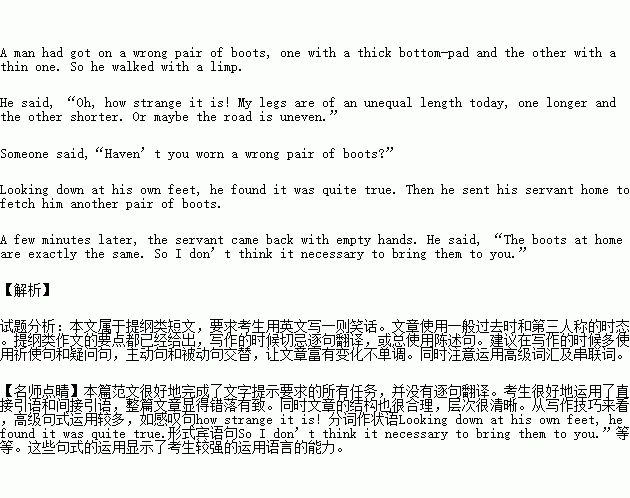题目内容
美国某刊物向你约稿,请你用英语写一则笑话,字数100-120。笑话大意:有人穿错一双靴子,一只底厚一只底薄,走路一瘸一跛。他想:“奇怪,我今天怎么一条腿长一条腿短呢?可能是路不平吧。”有人说:“你是把靴子穿错了吧?”他低头一看,果然如此。就叫仆人回家另取一双,一会儿仆人空手而归,说:“家里那双也是一样,所以我没有拿来。”
参考词汇:1. 靴子 boot;
2. 瘸或跛 limp(n./vi); lame (adj./ vi.)
3. (鞋)底 bottom-pad
4. (路)不平 not even / uneven
练习册系列答案
相关题目

